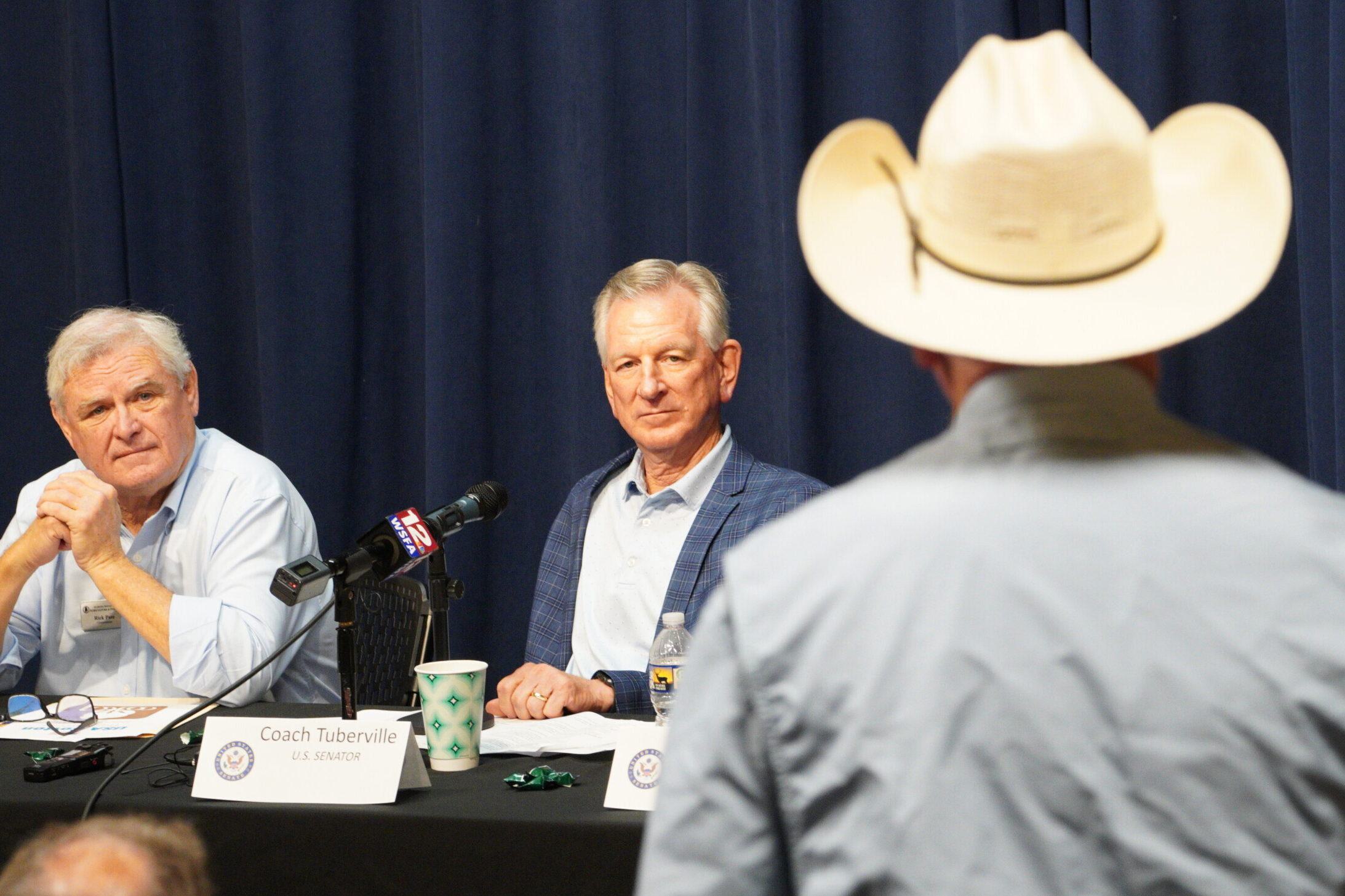MILLBROOK — U.S. Sen. Tommy Tuberville (R-Auburn) concluded his statewide tour on Wednesday after spending the week listening to farmers' concerns to ensure Alabama representation in the 2023 Farm Bill.
As the lone Alabama member on the Senate Agriculture, Nutrition, and Forestry (AG) Committee, Tuberville traveled to Bay Minette, Headland, Boaz and Millbrook to hear from the state's farmers concerning the upcoming Senate deliberation on the farm bill.
Every five years, Congress passes legislation that sets national agriculture, nutrition, conservation and forestry policy, commonly referred to as the "Farm Bill." When they return from recess in September, the 2024 farm bill will be a priority for lawmakers. According to Tuberville, the 2023 Farm Bill will likely come close to $1.5 trillion in spending, compared to the $867 billion in the previous farm bill.
"At the end of the day, we want what's best for the farmers," Tuberville said. "We want to keep our small farms. We got to keep our small farms open. We don't need to turn to big corporations."
Inflation and increased production costs were a focus for many who attended the Wednesday meeting.
Emma Johnston, who works with Tuberville's office focusing on agriculture, gave a brief overview of the funding breakdown and addressed production cost increases, a common concern amongst farmers statewide.
According to Johnston, only $300 billion would be used for "traditional farming commodities," and the remaining $1.2 trillion of the funds will go to SNAP benefits and other sundry programs.
"We know that you guys are struggling with cost of production and that they are out of control," Johnston said. "Since Joe Biden took office, cost of production in the past two years has increased overall 28%. That's the largest increase in history in a two-year period; 28%. Fertilizer is up over 60% as well as chemicals. Fuel has come down a little bit, but it's still over 30%. Not to mention seed, labor, everything else y'all are struggling with. So we know, and we're trying to address it."
During Wednesday's meeting, domestic manufacturing and criticism of the North American Free Trade Agreement (NAFTA) were also common themes. NAFTA created a trade bloc between the U.S., Canada and Mexico, which many speakers claimed negatively affected domestic and local agricultural production.
Apart from the Farm Bill, Tuberville has made agricultural flourishing a legislative priority.
Tuberville backed legislation to eliminate the federal Estate Tax, often called the Death Tax, to prevent family farms from going out of business.
He also helped introduce the Feral Swine Eradication Act to make permanent a stipulation in the 2018 Farm Bill to add protection against the more than $1.5 billion in damage caused by feral swine.
To connect with the author of this story or to comment, email craig.monger@1819news.com.
Don't miss out! Subscribe to our newsletter and get our top stories every weekday morning.










